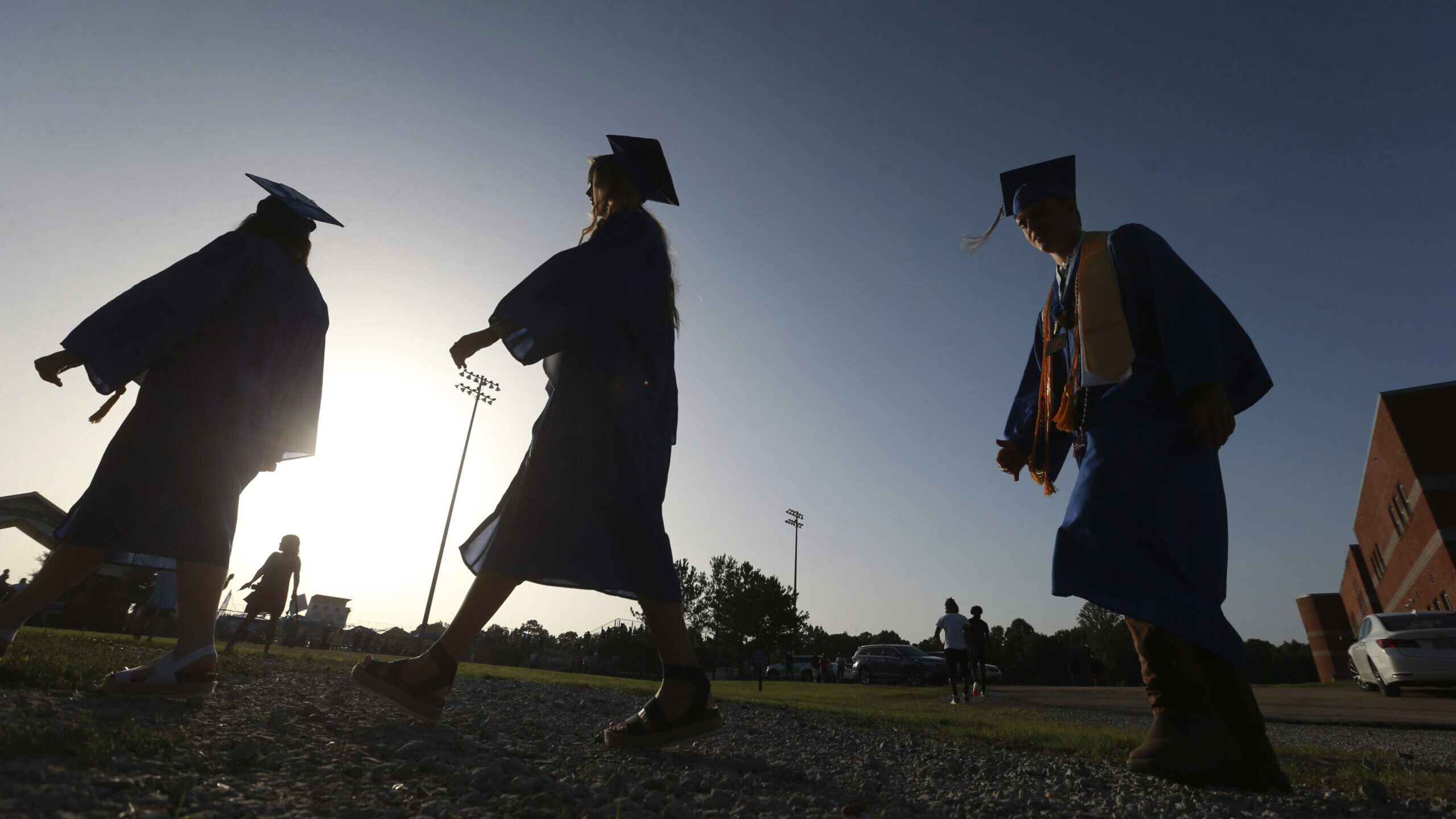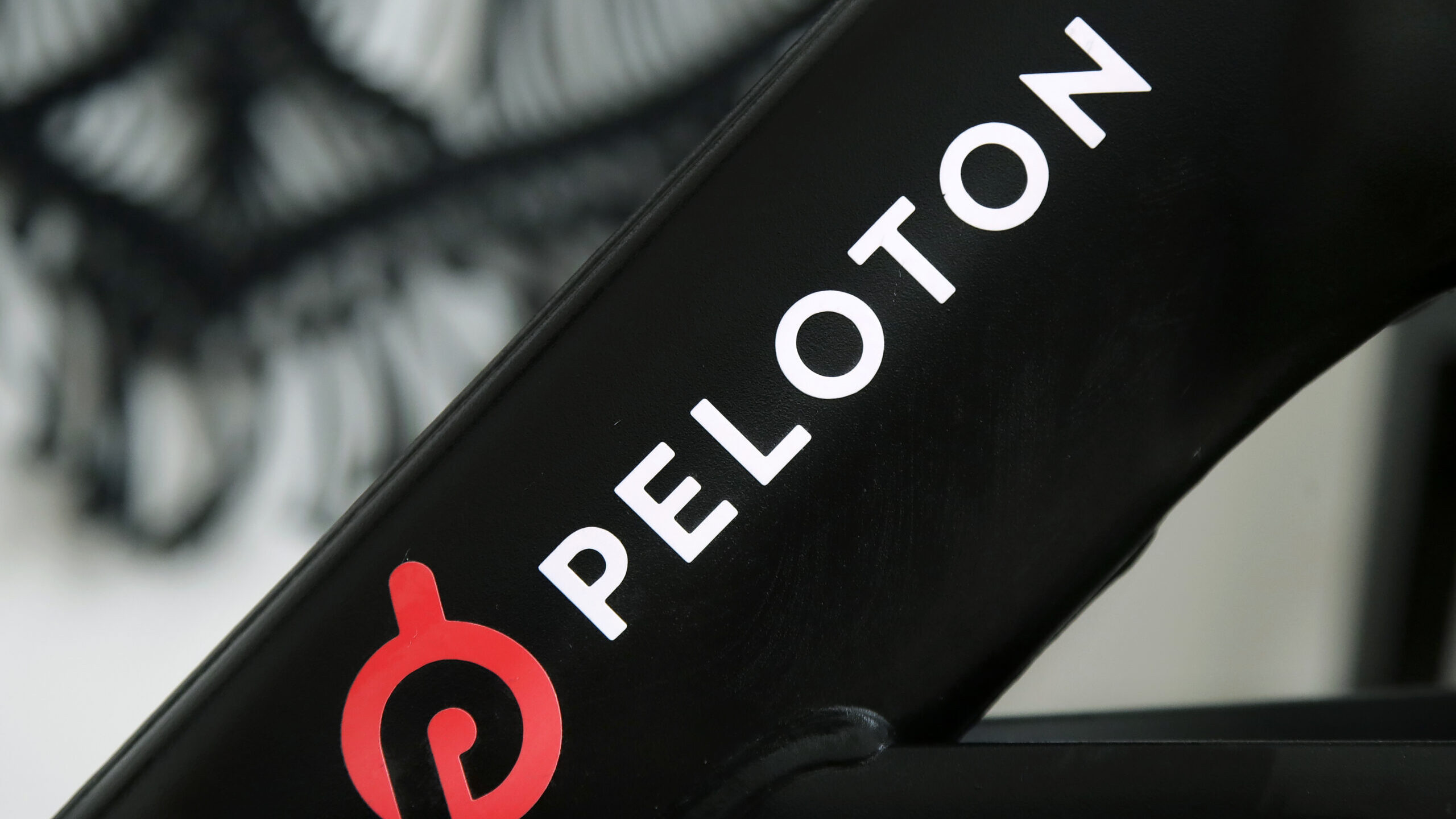BUSINESS + ECONOMY
Is college still worth the cost?
Apr 10, 2019, 3:27 PM | Updated: Apr 12, 2019, 6:08 pm

Utah graduation rates continue to see in increase. Photo: Butch Dill, Associated Press
College tuition costs have tripled over the last thirty years, and with it, student debt has skyrocketed so high that, today, our nation owes more than $1.5 trillion in student loans.
Getting an education is more expensive than ever, and with today’s young adults drowning in debt, it’s hard not to wonder: is college even worth it anymore?
That’s a question KSL Newsradio’s Dave & Dujanovic tackled. And for some majors, from a financial point-of-view, they found out that the answer is: “no”.
How did college get so expensive?

College costs are skyrocketing because so many of us are pushing our kids into a post-secondary institution, State Auditor John Dougall says. (Photo: iStockPhoto.com)
College didn’t always cost this much money. Back in 1985, according to the National Center for Education Statistics, you could cover your tuition, fees, room and board in an average undergraduate program for less than $5,000 a year.
Today, that wouldn’t be enough to cover the costs for half a semester.
Tuition costs have been steadily outpacing both inflation and our salaries. Adjusted for inflation and salary increases, today’s college students still have to budget 140% more of their paychecks toward paying for post-secondary education than their parents’ generation did.
The problem, Utah State Auditor John Dougall told Dave & Dujanovic, is the mindset that everyone must go to college.
“Because we have pushed the demand so much for students to go to college, we have driven up the demand, which drives up the cost of it because of inflation,” Dougall says. “A higher numbers of folks chasing limited opportunities means those opportunities are going to be more expensive.”
Currently, about 70 percent of students immediately move onto college the year they graduate high school. That’s a huge increase from 1980, when less than half of high school grads went on to college.
Colleges have been cranking up their prices in response to that increased demand, Dougall believes – although, according to some studies, those higher price tags don’t always bring better educations.
According to a study conducted by the College Affordability and Productivity Report, the overwhelming majority of a college student’s tuition go toward things other than their education.
The study, which specifically looked at Dartmouth, found that the school spends $51,762 per student each year – but only puts $9,100 of that toward teaching students. The other 82 percent of the money they spend go toward other perks, like administrative spending, sports programs, and student services that are unrelated to learning.
Still, the conviction has always been that, no matter how much it costs when you’re young, a college education promises a better future. But is that actually true?
Do college grads still make more money?
Looking at salaries alone, the answer seems like a simple “yes”. Throughout their lifetimes, college grads, according to Dougall, still make nearly one million dollars more than those with just high school degrees.
But that number’s an average, and while a degree in medicine or law might usually offer a strong return on investment, host Dave Noriega argues that it doesn’t work out that way for every major.
Teachers, for example, usually earn less than the average American, even after all the education they require. The average elementary teacher earned $52,241 a year, while the average high school teacher earned $54,473 a year. Both are well below the median income of $61,372.
Other fields that require college educations offer even worse pay. According to Salary.com, reporters earn an average salary of just $37,393, while the average human services workers earn just $22,738 – less than half of the national average.
Not only are those college grads making less money, though, they’re also being saddled with an intense amount of debt that seriously cuts into their paychecks.
The average college graduate leaves their undergraduate program with $28,650 in debt – but that number nearly doubles if you go on to get your Masters. On average, students with a Masters degree leave with $50,879 in debt.
For teachers, that’s a huge problem. Most high school teachers have a Masters degree, according to the National Center for Education Statistics. That means that they aren’t just getting less money than the average American; they’re also entering the workforce owing about as much money as they earn each year.
Just how bad can college debt be?

In this Oct. 6, 2011, file photo, Gan Golan, of Los Angeles, dressed as the “Master of Degree,” holds a ball and chain representing his college loan debt, during a protest in Washington. (Photo: Jacquelyn Martin, Associated Press)
Of course, graduating with $50,879 in debt doesn’t mean you’re just going to pay $50,879 and get off free. Debt grows – and if a graduate doesn’t make enough money to pay it off quickly, they can be saddled with it for the rest of their lives.
Federal Student Aid charges 5.05 percent interest for undergrads and 6.06 percent interest for graduate students, while private loans can make those rates even higher.
That means that the average high school teacher with a Masters degree just pays off the interest on their debt and not a penny more, they’ll still have to sacrifice $3,358 from their paycheck each year for the rest of their lives.
After 15 years of making those payments, they’ll already have given away more than $50,000 just in interest payments and they still won’t have paid off a penny of that original $50,879.
If, as Dougall says, they really are getting a million dollars more than high school grads, that might still be worth it. But for those moving into careers that only pay a few dollars more than their less educated neighbors, it might be worth crunching a few numbers before paying that first tuition bill.
Of course, the experience and the opportunity for a job you love might make that worth it, regardless of the cost.
And for those of us in Utah, the situation, fortunately, isn’t quite as bad as the rest of the nation. The average college student in Utah, according to Forbes, leaves school with just $18,838 in student debt – the lowest rate in the nation.
More to the story
If you missed Dave & Dujanovic break down the real cost of a college education live on the air, you can still catch everything they had to say on the Dave & Dujanovic podcast:
Dave & Dujanovic can be heard weekdays from 9 a.m. to noon on KSL Newsradio. Users can find the show on the KSL Newsradio website and app, as well as Apple Podcasts and Google Play.















